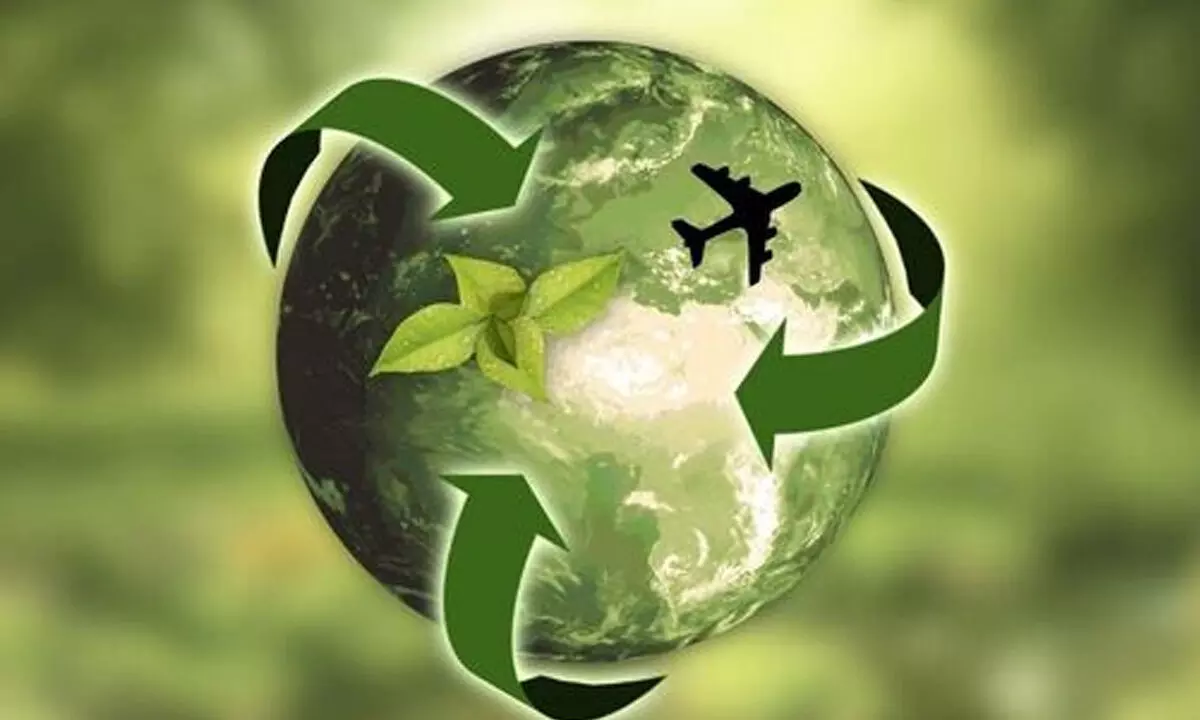Sustainable travel should replace mass travel for a greener future

The tourism industry is set to reach pre-pandemic heights in 2024, which is great news for businesses and those who work within the sector
The tourism industry is set to reach pre-pandemic heights in 2024, which is great news for businesses and those who work within the sector. However, the news is not so good when it comes to the environment. Accounting for approximately 8% of global greenhouse gas emissions, the tourism sector is exacerbating climate change. Additionally, cheaper flights and ease of travel mean that mass tourism is placing undue pressure on local ecosystems and communities.
Mass tourism, also known as over-tourism, is referred to as “the movement of a large number of organized tourists to popular holiday destinations for recreational purposes”. Often associated with the traditional holiday package, it describes the use of standardized travel products and mass consumption that is typically associated with other sectors, such as the fashion industry. Despite the relatively minor impact of tourists on an individual level, when it comes to mass tourism it is the sheer volume of visitors in popular destinations that results in a negative impact on the environment.
Around 95% of world tourists flock to just five per cent of its land area. This places a huge strain on a select number of popular tourist locations. The root of this mass tourism can be traced back to the democratization of travel, boosted by more affordable transport and cheaper resort accommodation. The growth within the travel sector has risen steadily since the 1950s, generating huge revenues and providing jobs in many countries and communities. According to Statista the number of international tourist arrivals in 2023 totalled just under 1.3 billion, not too far off the peak of over 1.4 billion tourists in 2019. And while this might be good news for the economy, with tourism receipts touching $ 1.4 trillion in 2023, this form of travel can unfortunately have a negative impact on local communities, environments and historical sites.
Even more worrisome is that mass tourism exerts enormous pressure on local resources. In many destinations, the influx of tourists leads to a significant spike in water usage, often in areas where water is already a scarce commodity. This increased demand can lead to water shortages for local communities. Additionally, the need for construction materials to build hotels, resorts and other tourist facilities often leads to overexploitation of natural resources. The food industry, too, faces a surge in demand, which can result in overfishing and other unsustainable practices to cater to the varied tastes of international tourists. Sustainable tourism on the other hand is the antithesis to mass tourism. It’s an approach that integrates the principles of sustainable development to travel. The World Tourism Organization (WTO) defines sustainable tourism as “tourism that takes full account of its current and future economic, social, and environmental impacts, addressing the needs of visitors, the industry, the environment, and host communities”.
Essentially this encompasses economic sustainability-Ensuring that tourism contributes positively to the economic well-being of host destinations while ensuring fair distribution of benefits among all stakeholders; social sustainability - focusing on the well-being of local communities, respecting their cultures and traditions and ensuring that tourism does not lead to social displacement or exploitation and environmental sustainability - minimising the ecological footprint of tourism activities, conserving natural resources, and promoting the preservation of biodiversity and natural habitats. As we move through 2024, sustainable tourism increasingly emphasizes the concept of ‘slow travel.’ This approach involves travelling less frequently but staying longer at each destination. It’s about getting immersed in the local culture, environment and community, rather than hopping quickly from one tourist spot to another. Slow travel allows for a more meaningful and enriching experience, giving travellers the opportunity to truly absorb and appreciate the nuances of different cultures and places - while also reducing carbon emissions!
By adopting these practices, travellers in 2024 can contribute to a more sustainable and responsible tourism culture and one that values the quality of experience over the quantity of destinations. Governments and local authorities are increasingly recognizing the importance of promoting sustainable transportation. Many countries and regions have introduced affordable public transport passes to encourage tourists and locals alike to opt for greener travel options. These initiatives not only make sustainable travel more accessible but also significantly contribute to reducing CO2 emissions.
As we look towards a more sustainable future, the importance of eco-responsible tourism cannot be overstated.
By adopting practices such as supporting local economies, choosing green transportation, consuming local products, and minimizing waste production, we, as travellers, can make a huge impact when it comes to preserving the cultural and natural heritage of our destinations. This shift in travel behavior not only enriches our own experiences but also ensures that the wonders of the world remain intact for future generations to explore and cherish.














